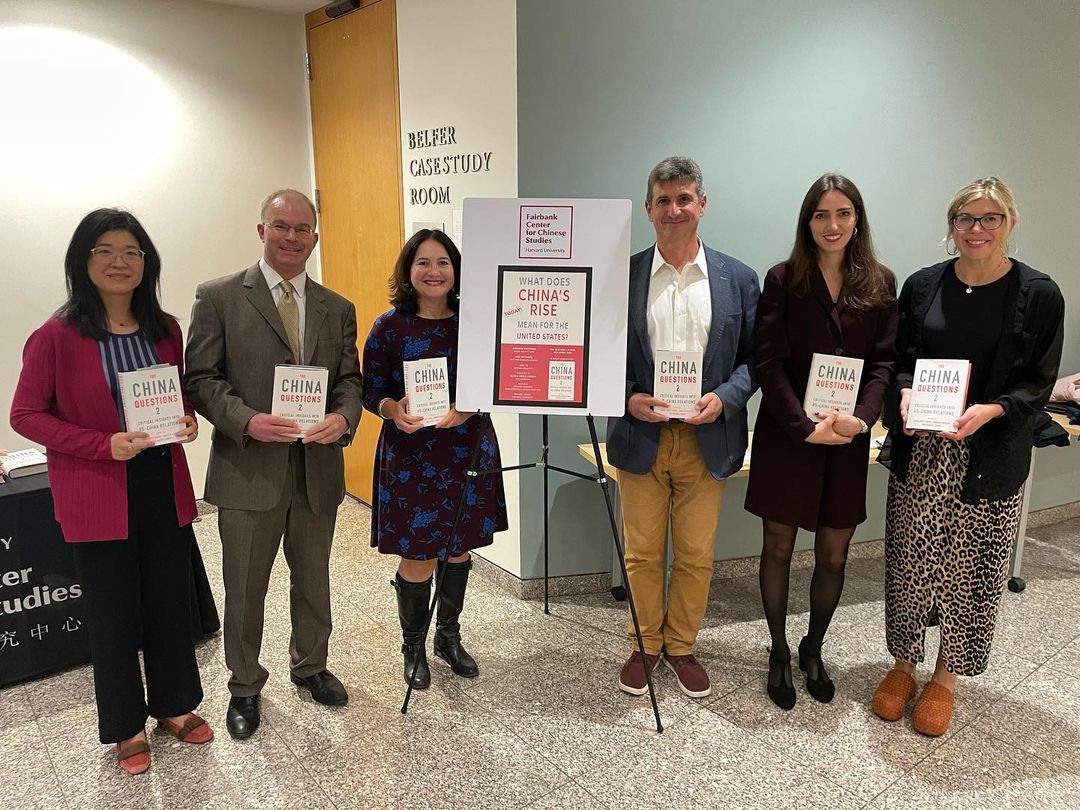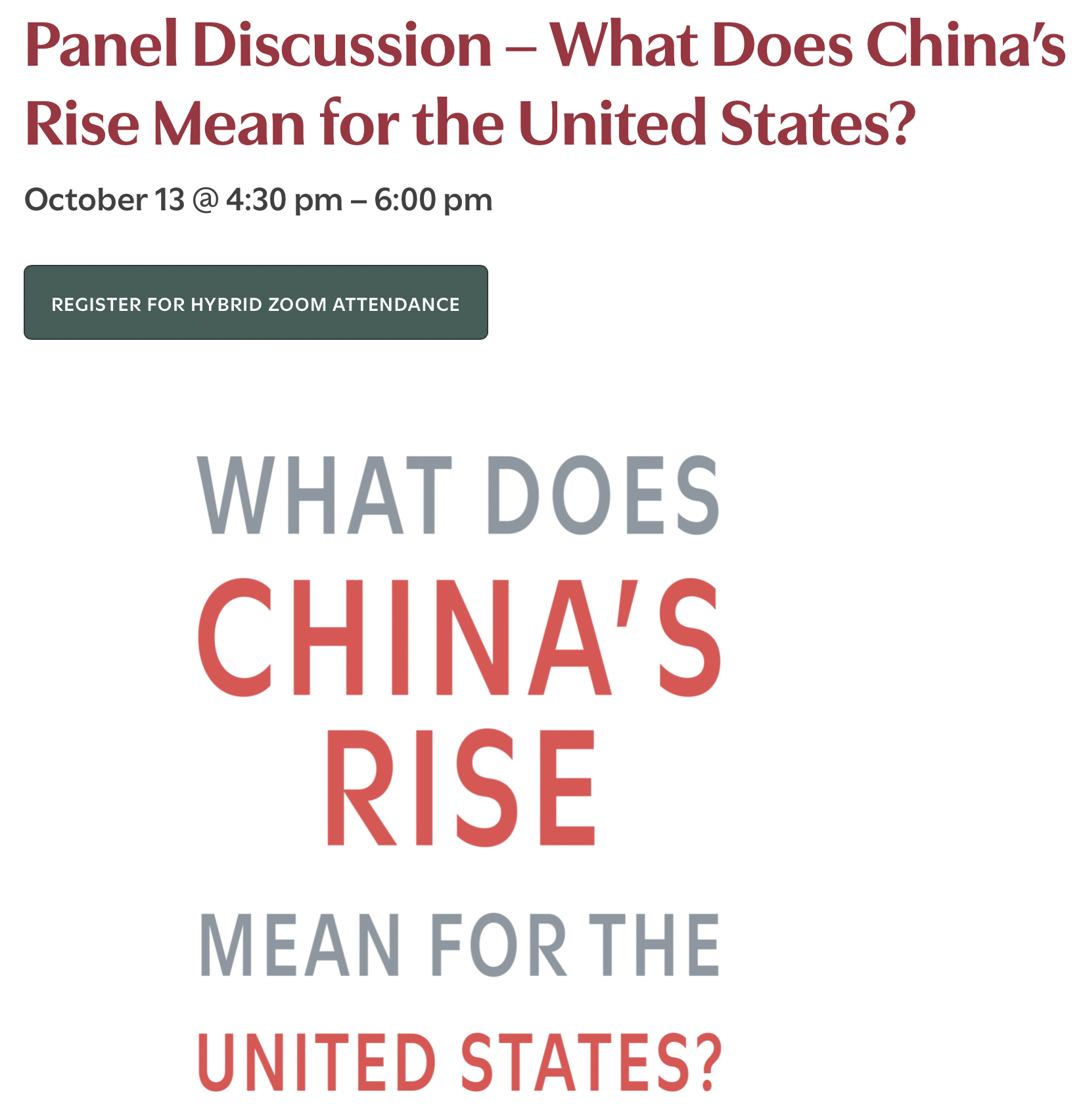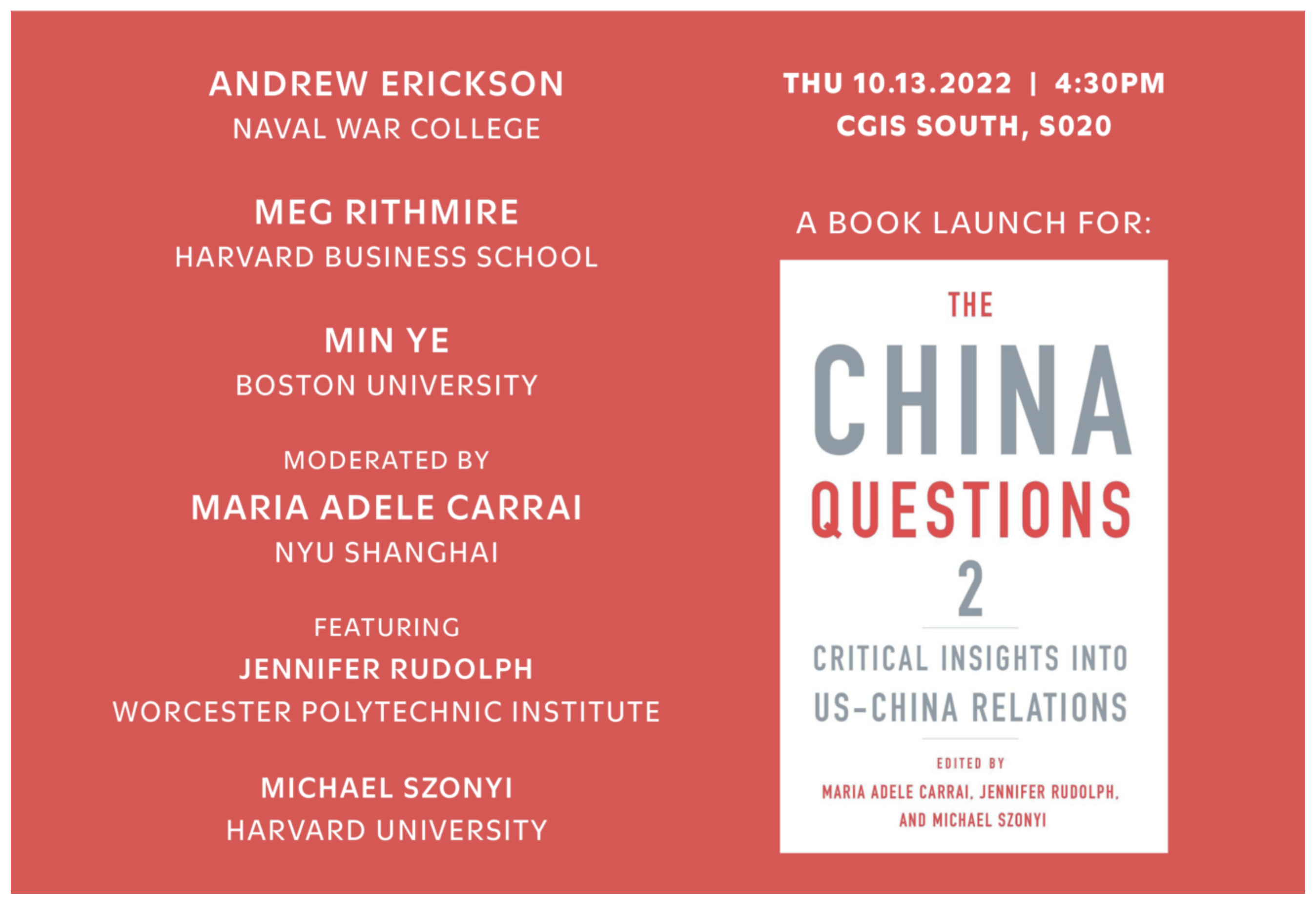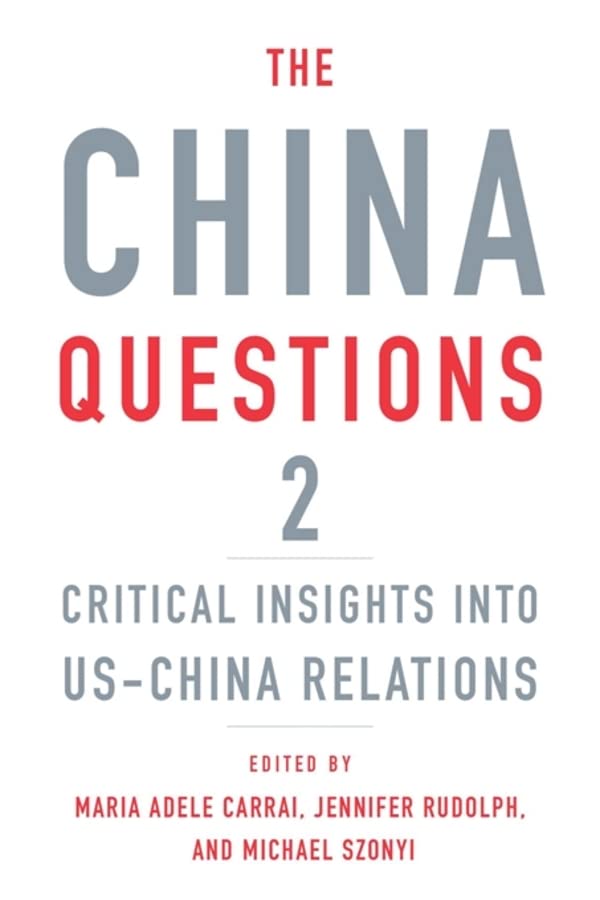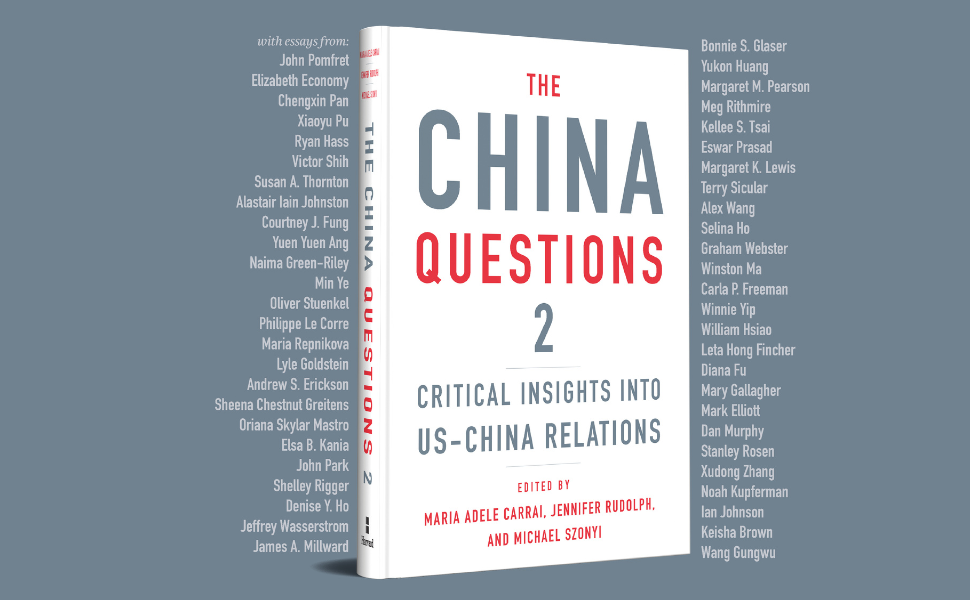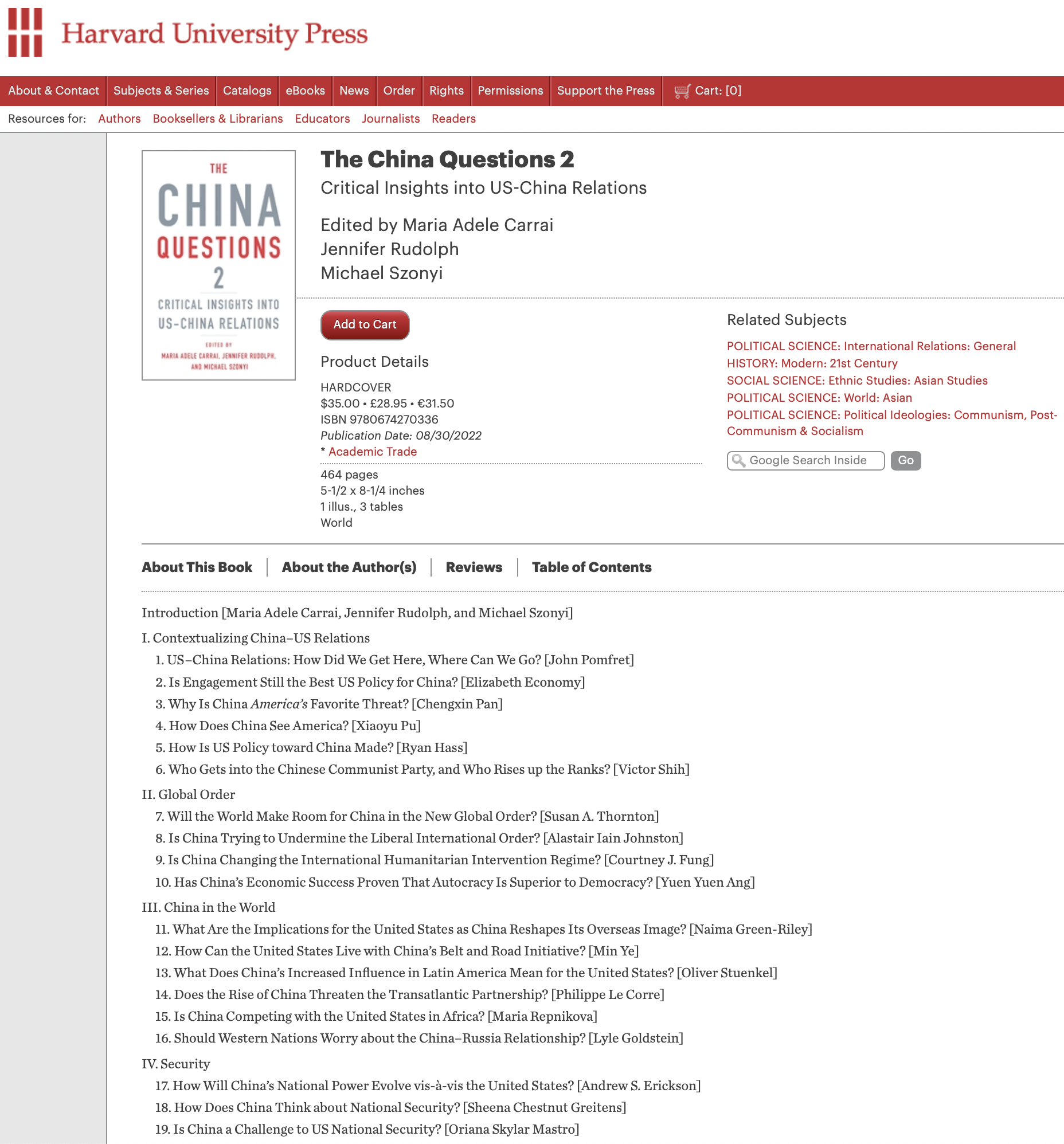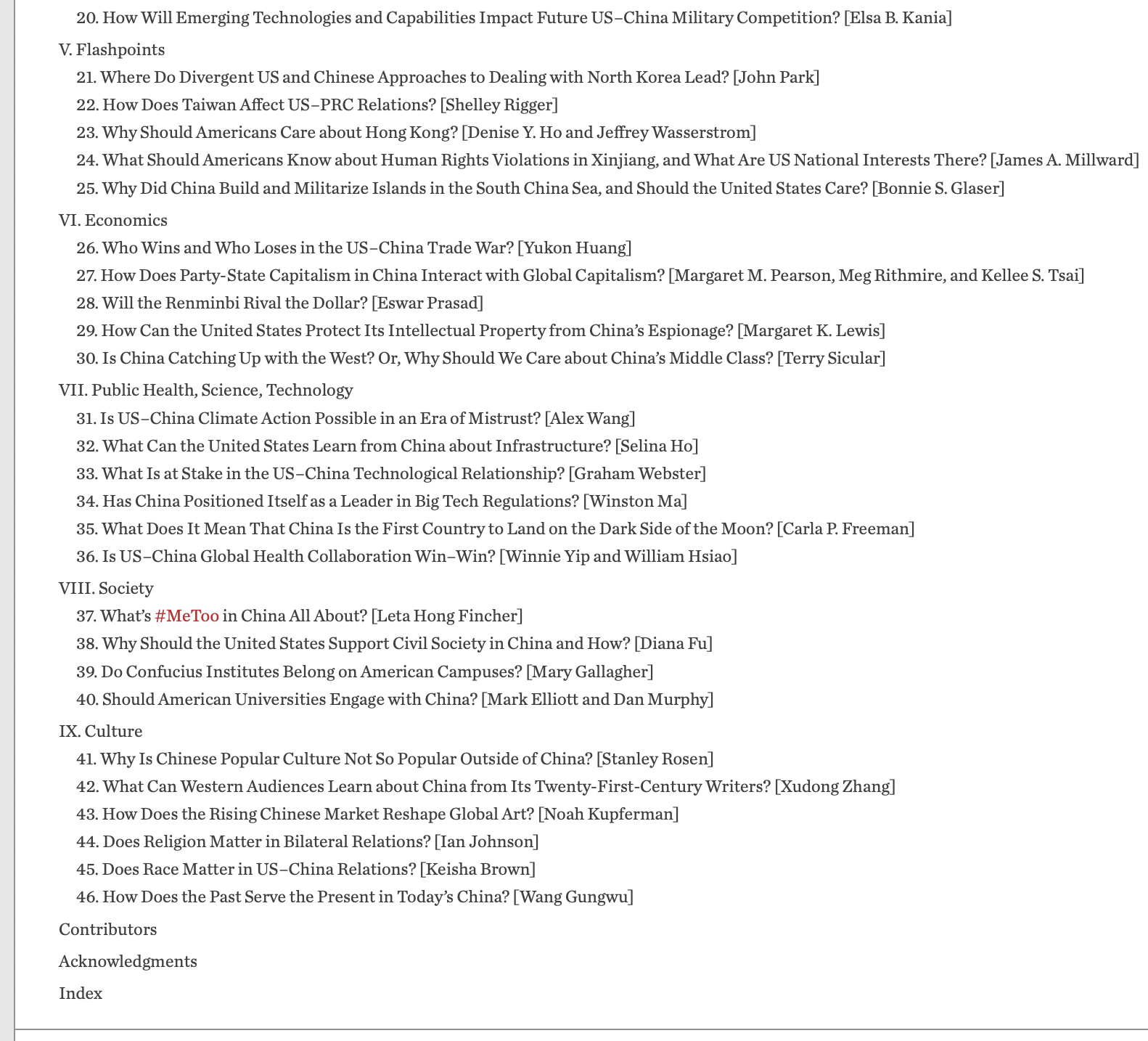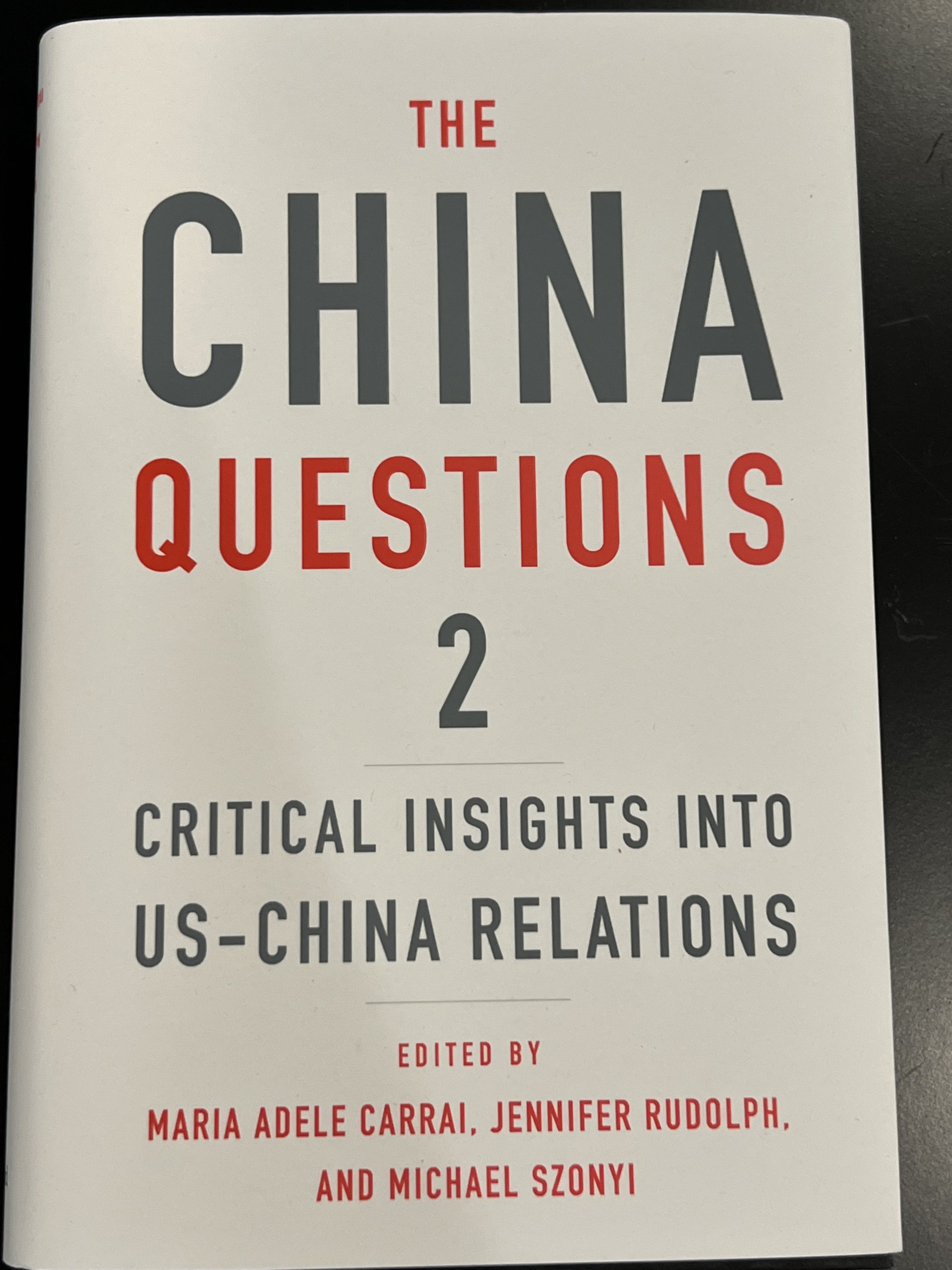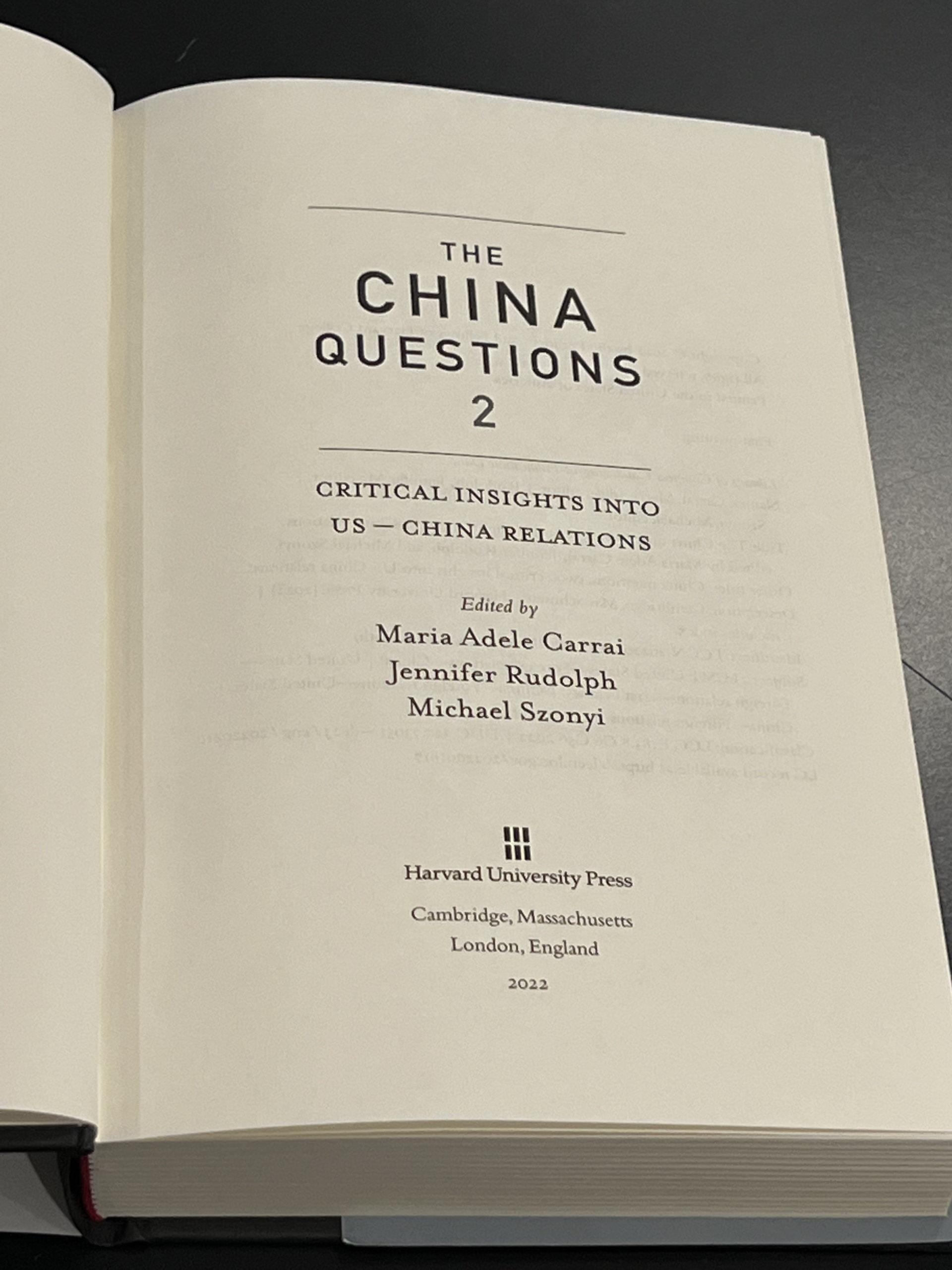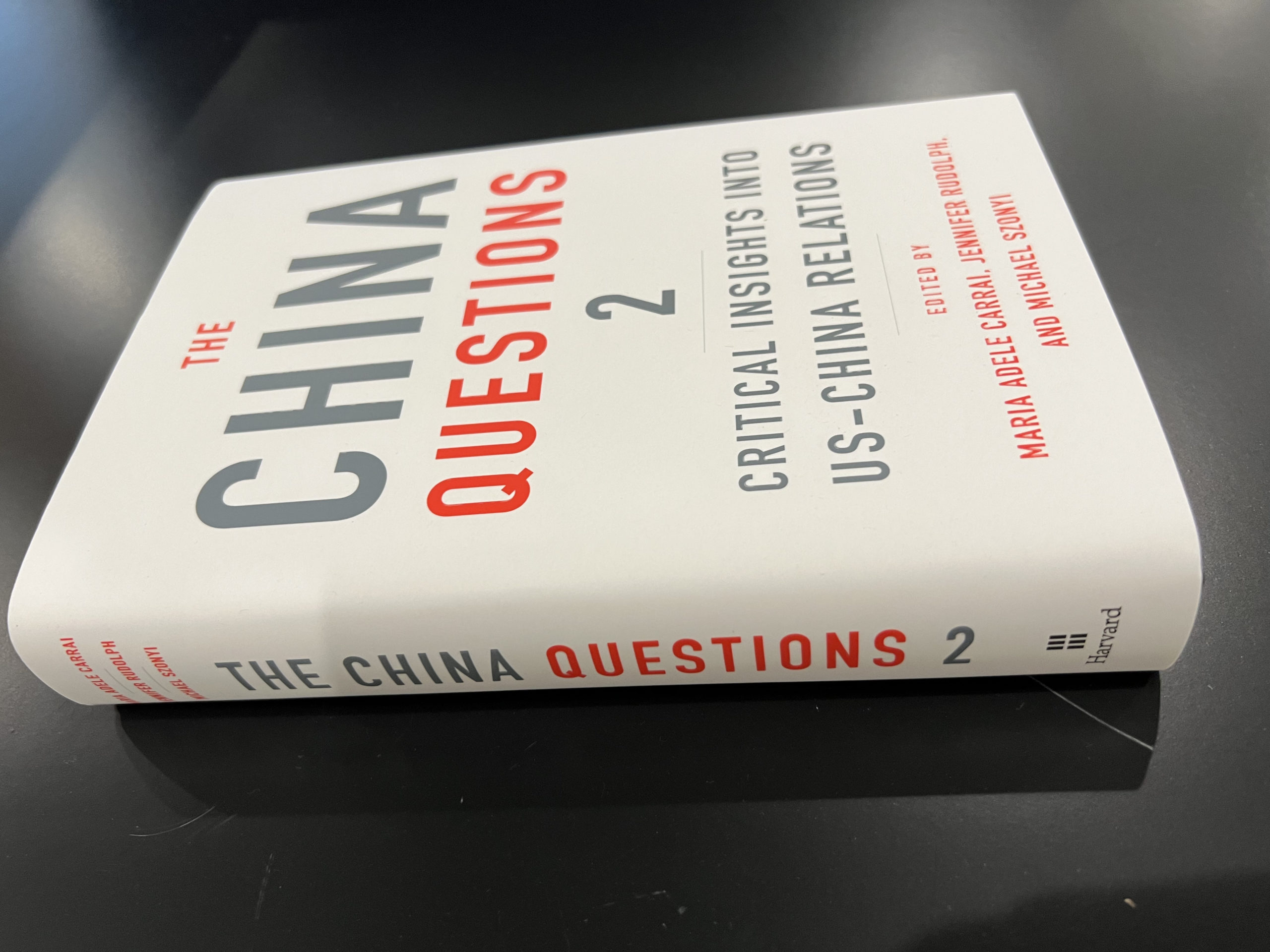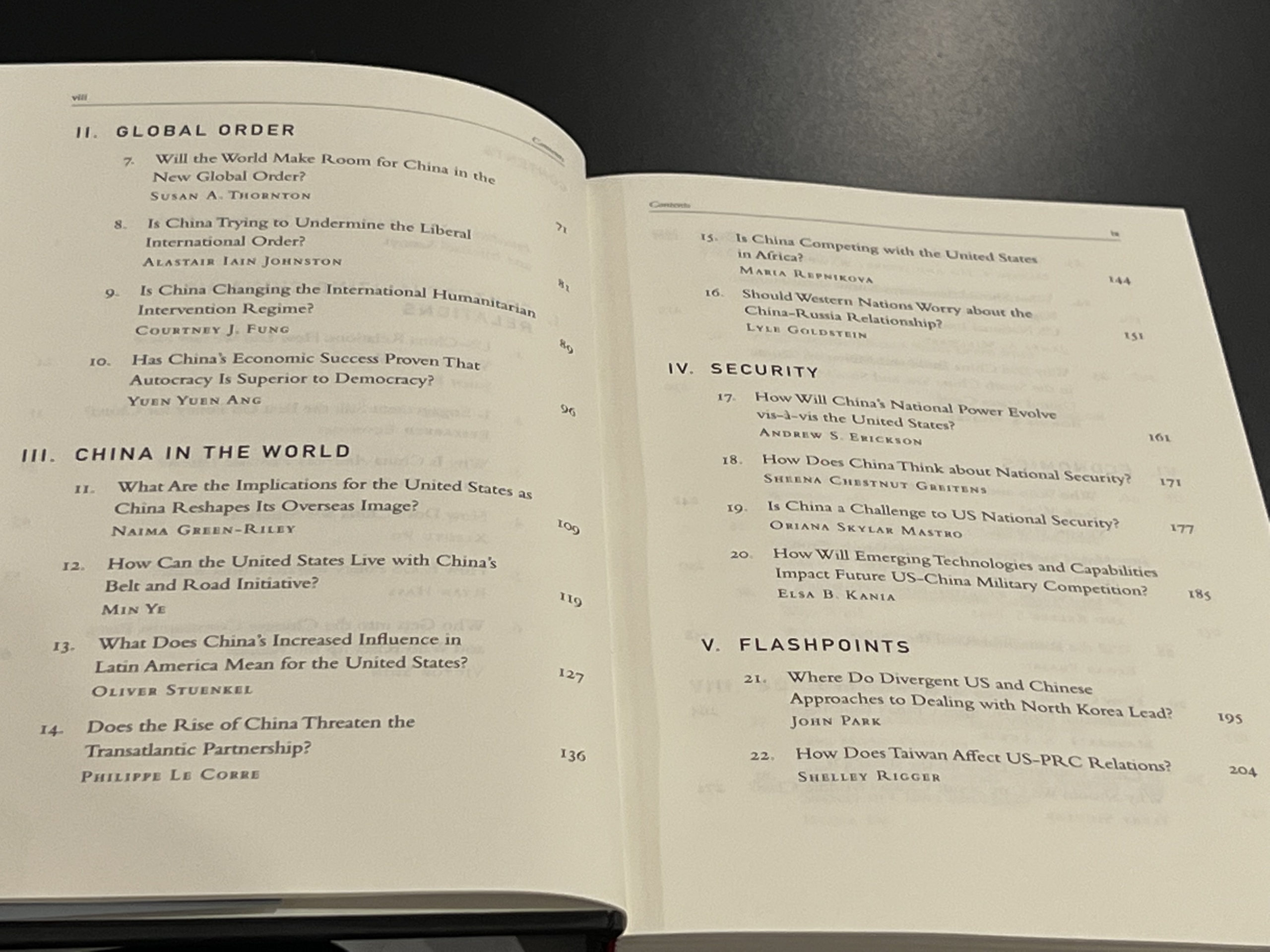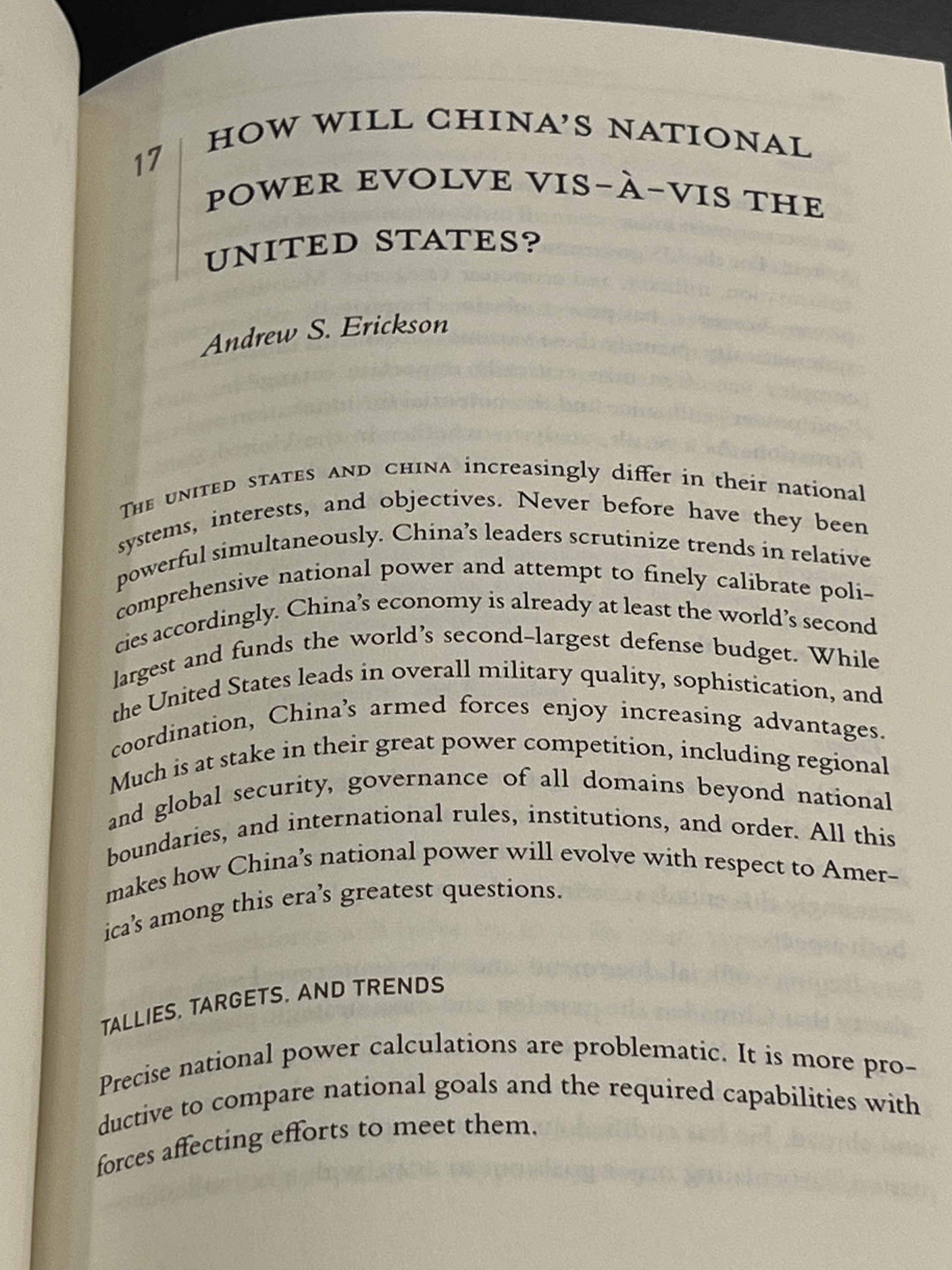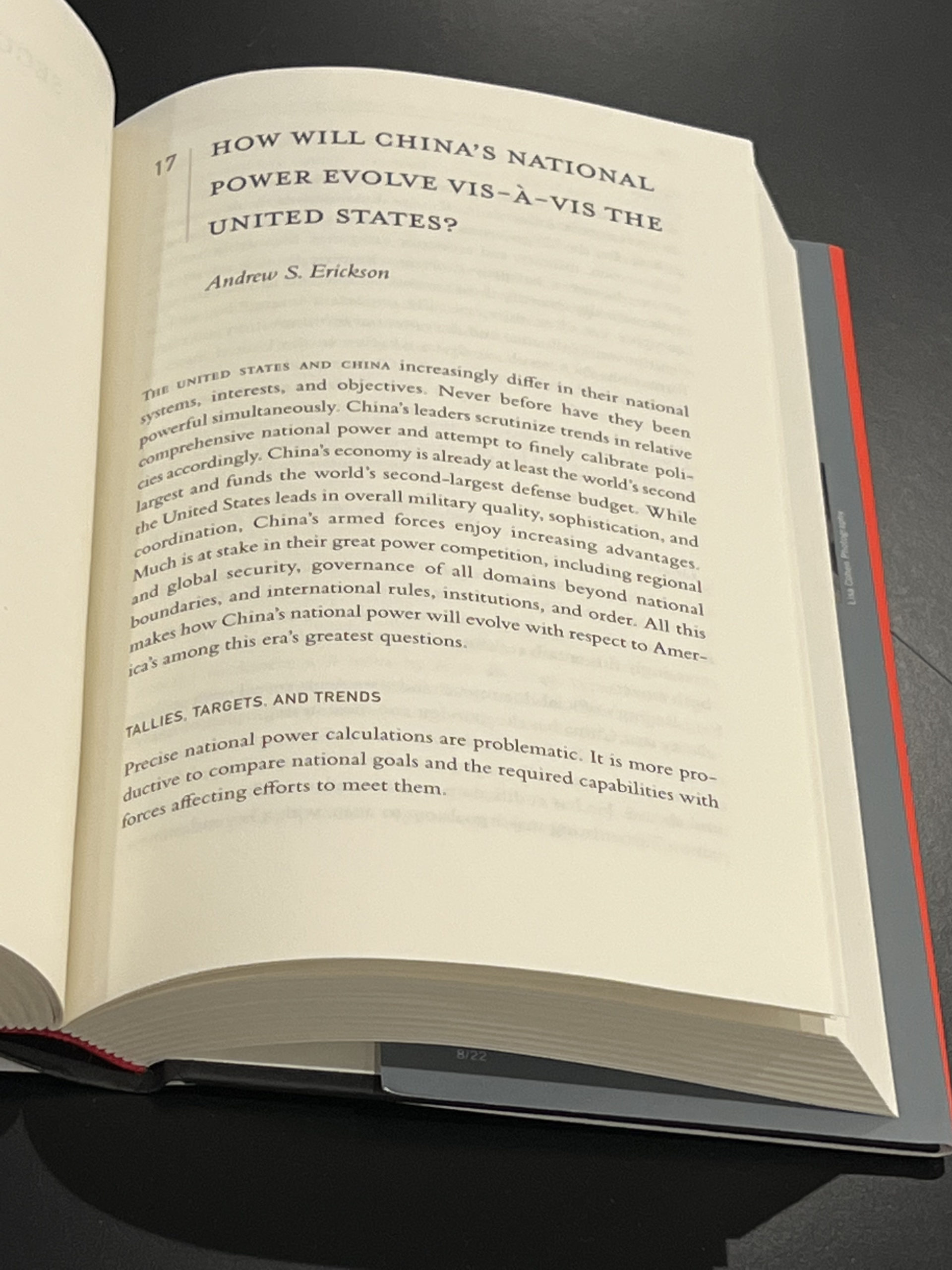Harvard Fairbank Center Book Launch & Panel Discussion—“The China Questions 2” & “What Does China’s Rise Mean for the U.S.?”—Thursday, 13 October, 4:30–6:00 PM
Panel Discussion – What Does China’s Rise Mean for the United States?
13 October 2022 @ 4:30 pm – 6:00 pm
Click here to register for hybrid attendance via Zoom.
For decades Americans have described China as a rising power. That description no longer fits: China has already risen. What does this mean for the US–China relationship? For the global economy and international security?
Join the Fairbank Center for a panel discussion to explore these questions and celebrate the release of The China Questions 2: Critical Issues in US-China Relations.
Speakers:
- Andrew Erickson, Professor of Strategy and Research Director, Naval War College’s China Maritime Studies Institute
- Meg Rithmire, F. Warren MacFarlan Associate Professor in the Business, Government, and International Economy Unit, Harvard Business School
- Min Ye, Associate Professor of International Relations, Boston University Pardee School of Global Studies
Moderator:
- Maria Adele Carrai, Assistant Professor of Global China Studies at NYU Shanghai, Harvard University Asia Center Associate
EVENT DETAILS
- Date: October 13
- Time: 4:30 pm – 6:00 pm
- Category: Special Event
- Organizer: Fairbank Center for Chinese Studies
- Venue: CGIS South S020, Belfer Case Study Room, 1730 Cambridge Street, Cambridge, MA 02138
INFORMATION ON VOLUME BEING LAUNCHED
About the Editors
Maria Adele Carrai specializes in the history of international law in East Asia and is the author of Sovereignty in China: A Genealogy of a Concept since 1840. She is Assistant Professor of Global China Studies at New York University Shanghai.
Jennifer Rudolph is author of Negotiated Power in Late Imperial China: The Zongli Yamen and the Politics of Reformand coeditor of The China Questions: Critical Insights into a Rising Power. She is Professor of Asian History and International/Global Studies at Worcester Polytechnic Institute.
Michael Szonyi is author of The Art of Being Governed: Everyday Politics in Late Imperial Chinaand Cold War Island: Quemoy on the Front Lineand coeditor of The China Questions: Critical Insights into a Rising Power. He is Frank Wen-hsiung Wu Professor of Chinese History and Director of the Fairbank Center for Chinese Studies at Harvard University.
Following the success of The China Questions, a new volume of insights from top China specialists explains key issues shaping today’s US-China relationship.
For decades Americans have described China as a rising power. That description no longer fits: China has already risen. What does this mean for the US-China relationship? For the global economy and international security? Seeking to clarify central issues, provide historical perspective, and demystify stereotypes, Maria Adele Carrai, Jennifer Rudolph, and Michael Szonyi and an exceptional group of China experts offer essential insights into the many dimensions of the world’s most important bilateral relationship.
Ranging across questions of security, economics, military development, climate change, public health, science and technology, education, and the worrying flashpoints of Hong Kong, Taiwan, and Xinjiang, these concise essays provide an authoritative look at key sites of friction and potential collaboration, with an eye on where the US-China relationship may go in the future. Readers hear from leading thinkers such as James Millward on Xinjiang, Elizabeth Economy on diplomacy, Shelley Rigger on Taiwan, and Winnie Yip and William Hsiao on public health.
The voices included in The China Questions 2 recognize that the US-China relationship has changed, and that the policy of engagement needs to change too. …
REVIEWS
“A timely book. For general readers and students alike, these concise essays on critical aspects of the US-China relationship work very well. An impressive roster of authors collectively provides a broad overview of the many aspects of the relationship, going well beyond diplomacy and politics. The essays also work beautifully by themselves.” ― Odd Arne Westad, author of Empire and Righteous Nation: 600 Years of China-Korea Relations
“Focusing on the turbulent bilateral relationship between China and the United States, The China Questions 2 offers a wide range of accessible essays on topics from international relations to culture, in a tone that is lively and argumentative but always balanced. Overall, the book has a powerful message: the United States needs informed and clear-eyed engagement with China.” ― Rana Mitter, author of China’s Good War: How World War II Is Shaping a New Nationalism
“Required reading. The authors are a who’s who of American scholars on US–China relations, and the topics include virtually everything that would be of concern to students, academics, and practitioners. At a time when there are too few books on the relationship generally, this fills a wide gap. The editors have my admiration.” ― Stephen A. Orlins, President of the National Committee on United States–China Relations
CONTENTS
Andrew S. Erickson, “How Will China’s National Power Evolve Vis-à-vis the United States?” in eds., The China Questions 2: Critical Insights into U.S.-China Relations (Cambridge, MA: Harvard University Press, 2022), 161–170.
The United States and China increasingly differ in their national systems, interests, and objectives. Never before have they been powerful simultaneously. China’s leaders scrutinize trends in relative comprehensive national power and attempt to finely calibrate policies accordingly. China’s economy is already at least the world’s second largest and funds the world’s second-largest defense budget. While the United States leads in overall military quality, sophistication, and coordination, China’s armed forces enjoy increasing advantages. Much is at stake in their great power competition, including regional and global security, governance of all domains beyond national boundaries, and international rules, institutions, and order. All this makes how China’s national power will evolve with respect to America’s among this era’s greatest questions.
TALLIES, TARGETS, AND TRENDS
Precise national power calculations are problematic. It is more productive to compare national goals and the required capabilities with forces affecting efforts to meet them.
Tallies
Comprehensive national power can be defined as a nation’s ability to exert or resist influence in all major dimensions of the international system. For the US government, this is often divided into diplomatic, information, military, and economic categories. Measuring national power, however, has proven elusive. Empirically rich attempts to systematically quantify these various components can be extremely complex yet often miss critically important intangibles, such as “soft power” influence and the potential for innovation and transformation. As a result, analysts, whether in the United States or the People’s Republic of China (PRC), have produced widely divergent estimates for the ranking of nations’ relative power. A more realistic approach to assessing comprehensive national power involves considering a range of potential future scenarios and surveying and weighing key dynamics that will likely inform the great powers’ trajectories across them. … … …

